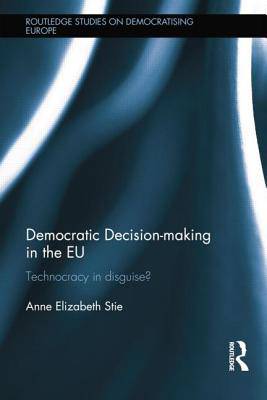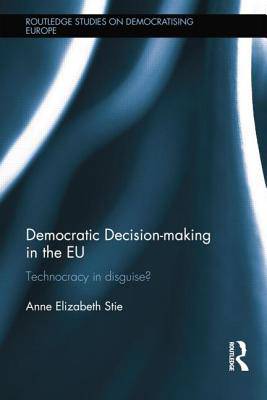
- Retrait gratuit dans votre magasin Club
- 7.000.000 titres dans notre catalogue
- Payer en toute sécurité
- Toujours un magasin près de chez vous
- Retrait gratuit dans votre magasin Club
- 7.000.0000 titres dans notre catalogue
- Payer en toute sécurité
- Toujours un magasin près de chez vous
Description
This book examines the democratic legitimacy of the European Union (EU) and evaluates the democratic credentials of the EU's main decision-making procedure. It finds that though there is potential for democratic decision-making in the EU, the actual process is dominated by technocrats and secret meetings.
The book assesses and discusses the conditions for democratic input in decision-making with five empirical chapters each addressing the ordinary legislative procedure from different dimensions: democratic deliberative forums, inclusion, openness, power neutralising mechanisms and decision-making capacity. The analytical framework provides for an in-depth assessment of the ordinary legislative procedure's potential democratic qualities and examines whether it fulfils democratic criteria, how the procedure works in practice and whether it has the necessary democratic clout. The author provides both a theoretical discussion and an empirical assessment of what role the principle of democracy could play in the EU.
Filling a gap in EU legislative studies and contributing to the debate on the European democratic deficit, Democratic Decision-making in the EU will be of interest to students and scholars of European Union politics, legislative studies and deliberative democracy.
Spécifications
Parties prenantes
- Auteur(s) :
- Editeur:
Contenu
- Nombre de pages :
- 256
- Langue:
- Anglais
- Collection :
Caractéristiques
- EAN:
- 9781138830264
- Date de parution :
- 02-03-16
- Format:
- Livre broché
- Format numérique:
- Trade paperback (VS)
- Dimensions :
- 156 mm x 233 mm
- Poids :
- 469 g

Les avis
Nous publions uniquement les avis qui respectent les conditions requises. Consultez nos conditions pour les avis.






